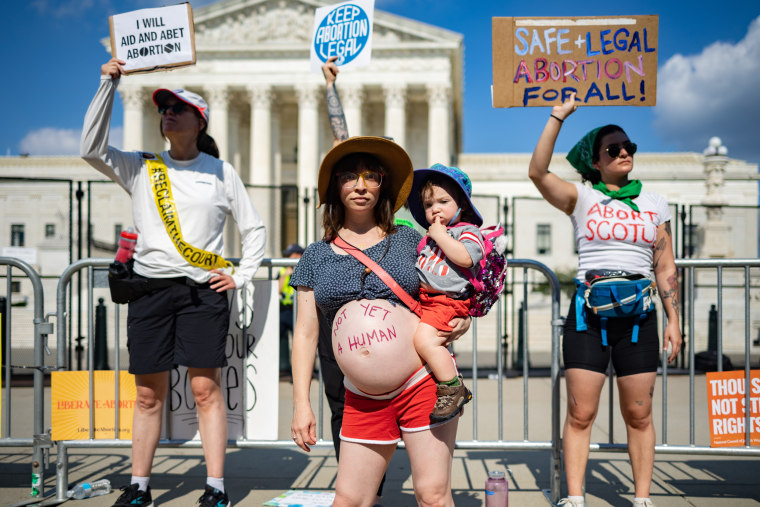The Supreme Court ruled last month that there is no Constitutional right to an abortion. Now it's time for the states to weigh in, and they have their own courts and constitutions.
In some, like Kansas and Minnesota, judges have previously found a right to abortion based on the text of their state constitution.
Even Mississippi’s abortion ban, which provided the impetus for overturning Roe v. Wade, has to overcome a 1998 state supreme court ruling that found “abortion is protected” under its constitution. Health clinics have sued to block abortion restrictions on this basis, but a judge last week allowed them to take effect. The case is likely to end up at the state's highest court.
Judges also are deciding whether long-dormant abortion bans in places like Michigan, Wisconsin, Arizona, and Texas, can take effect, some of which were passed over a century ago.
Unlike the federal Supreme Court, voters determine who sits on the high court in 38 states, either through competitive elections or a retention vote. Spending and interest in judicial races, already at record highs, is likely to surge in the coming months and years.
"We're going to be expanding our engagement at the state level to meet the moment and to meet the challenge of the abortion industry trying to once again take the voice away from the American people," Stephen Billy, Vice President for State Affairs at Susan B. Anthony Pro-Life America, told NBC News.
Judiciary races could become especially relevant in places like North Carolina or Georgia where Democrats who favor abortion access are competitive at the state level, but face gerrymandered district lines that make it harder to win seats in the legislatures.
If demographic trends were to break in Democrats' favor, "you could have a serious misalignment between the statewide voting electorate and the legislature in the very near future," according to Jake Faleschini, Legal Director of State Courts at Alliance For Justice, a group that favors abortion rights.
In Wisconsin, for example, judges are chosen in statewide elections. That makes them a likely quicker path to impacting policy than winning all three branches of government, where legislative maps favor Republicans.
Because state laws vary, the legal arguments for protecting abortion may as well. In some states, like Florida, there's an explicit right to privacy written into the constitution, rather than an implied right that the U.S. Supreme Court cited in Roe v. Wade in 1973. Many state constitutions include an Equal Rights Amendment that prohibits discrimination on the basis of sex, which could provide another legal angle to attack bans.
The judges who preside over these cases are crucial, but voters and elected officials alike will also have ways to bypass them or rein in their influence.
The most obvious path is to simply enshrine abortion rights or abortion restrictions into the state constitution.
That's what anti-abortion activists are trying to do in Kansas, where voters will decide on a proposed amendment on August 2 that would clarify the constitution does not protect abortion. Michigan voters may get to vote on an amendment to protect abortion access in November, which would remove the possibility of a 1931 ban taking effect. In Alaska, voters have the option to call a constitutional convention that might eventually overturn prior state rulings that favor abortion rights.
Even in states with strong partisan leans, an up-or-down vote on abortion could yield unpredictable results. In Mississippi, voters rejected a fetal personhood amendment in 2011 that would have overrode their state court's decision to uphold abortion rights.
State legislators can intervene as well, either by advancing new amendments or simply defanging courts who get in the way.
While plans to expand or remake the U.S. Supreme Court are often derided by critics as a norm-busting power grab, for example, they're becoming a more common tactic at the state level.
Republican-led governments in Arizona and Georgia added seats to their court in recent years. States where independent commissions take the lead in choosing judges could also be a target. Iowa legislators passed a law that gave the governor more control over nominations after the court found a right to abortion in 2018. The remade court overturned the decision last month, paving the way for new restrictions.
"We're going to see retaliation and and backlash and retrenchment in some places," said Alicia Bannon, Director of the Judiciary Program at the Brennan Center for Justice, which backs measures to reduce political influence on courts.

